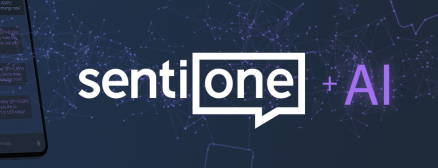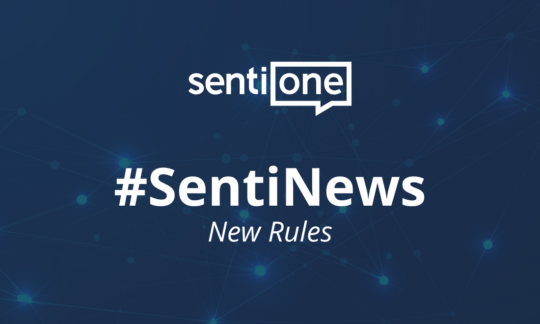The use of social listening in selected industries. Part I
Are you thinking about implementing social listening in your company, but have doubts whether social media analytics will work just in your industry? Don’t be! After all, social listening is a valuable tool for companies that want to better understand their customers, improve their products or services, and build stronger relationships with their audiences – no matter what industry they are in. Below, as part of the first part of our series, we look at how it can be applied to 4 completely different industries: automotive, banking, FMCG and sports. We invite you to read on!
What is social listening all about?
Social listening is the process of actively tracking, analyzing and responding to mentions, comments or opinions appearing on social media platforms about a particular brand, product, service, person, industry or phenomenon. Its purpose is to find out what people are saying and thinking about a given topic, and then use this information to improve the business being conducted (such as increasing brand awareness, improving customer service, developing new products and services). This is possible because analyzing this data allows companies to better understand customers, respond to their needs, and anticipate and adapt to market changes.
Thus, social listening can provide companies with valuable information regarding, among other things:
- customer feedback – allows you to find out what customers think about products, services, customer service, the brand as a whole, etc..,
- Market trends – helps identify new trends and opportunities in the industry,
- Competition – gives you the opportunity to track your competitors’ activities and compare yourself to them,
- crises – allows for quick identification and response to potential image crises.
This makes social listening useful not only for marketing departments, but also for sales (what are the advantages of our products?), customer service (what can we do to make customers more satisfied?) or research and development (in which direction should we develop our products?).
Escucha social: ¿en qué sectores funciona?
Cuando se trata de la escucha social, lo más importante es identificar los objetivos específicos que una empresa quiere alcanzar con ella, y después elegir las herramientas y técnicas adecuadas para conseguirlos. Al fin y al cabo, esta “herramienta” en sí puede utilizarse de diversas formas, lo que puede demostrarse mejor con el ejemplo de sectores específicos.
Social listening – in which industries does it work?
In the case of social listening, the most important thing is to identify the specific goals that the company wants to achieve with it, and then choose the right tools and techniques to achieve them. After all, this “tool” itself can be used in a variety of ways, which can best be shown by the example of specific industries.
Social listening in the automotive industry
Thanks to social listening, automotive brands can, among other things, monitor customer feedback on new car models or analyze service satisfaction. This allows them, firstly, to discover further or new directions for product development, and secondly, to get an idea of areas where quality can be improved (such as technical problems reported by customers). At the same time, tracking mentions gives you the chance to discover trends in automotive preferences, so you can understand customers’ changing needs and expectations. This, in turn, translates into strategic business decisions.
Social listening in banking
What is one of the biggest challenges for banks? First and foremost, quick response to customer complaints about the services offered – especially when the application suddenly stops working, there are problems with access to the bank account, or customers can’t make a transfer (and today is the due date for a loan payment). Tracking mentions in social media allows us to detect a technical problem in the shortest possible time, issue an appropriate message and confirm the repair of the fault.
It is also very important for brands in the banking sector to monitor mentions of security (including cybersecurity incidents), which is of great importance to audiences and significantly affects brand trust and reputation. Setting crisis alerts on mentions related to RODO or data leakage allows you to momentarily discover an alarming situation and apply an appropriate solution, effectively protecting the brand’s reputation.
At the same time, by tracking customers’ opinions on banking services, you can understand their expectations, which will certainly facilitate the development of new solutions better suited to current needs. One should also not forget about the possibility of analyzing the competition and their marketing activities or evaluating the effectiveness of ongoing educational campaigns on personal finance.
Social listening in sports
What do sports fans think about sports events, teams, individual athletes? That’s what you’ll find out from analyzing social media mentions – and use this information, for example, to execute real-time marketing posts or establish advertising partnerships with an athlete with a good reputation among the audience (Decathlon and Kuba Kochanowski are examples).
At the same time, social listening will allow you – if you are in the sports industry – to understand the changing preferences of sports consumers. By tracking through social media their reactions to new products and services, you will be able to identify needs and expectations. What’s more, in this industry it is also important to respond quickly to complaints and problems raised by fans – and this is what you can achieve with the help of social listening.
Social listening in FMCG (Fast Moving Consumer Goods).
What about in the case of the fast-moving products industry, such as groceries or cleaning products? In this situation, social listening allows, first and foremost, to regularly follow up on mentions related to product quality and respond quickly to complaints and problems raised by customers. This makes it possible to make necessary changes in areas such as customer service or product development – for example, to offer sugar-free products due to consumer dietary trends seen on social media, or eco-friendly cleaning chemicals (due to a growing group of people choosing environmentally friendly products).
A great example of this practice is Coca-cola, which in 2014 removed brominated vegetable oil (BVO) from its products after an online petition signed by more than 200,000 people to that effect.
Social listening in industries – summary
Monitoring reviews, reputation management, evaluating the effectiveness of marketing campaigns, analyzing competitors, tracking trends – no matter what industry you are in, you can (or rather: should) carry out these types of activities. Social listening will effectively help you with this, which is best confirmed by the fact that it works well for any company and adapts fully to the needs of the individual. So you can consider it not only as social media monitoring, but as a way to develop a strategy that will support business development, increase competitiveness and allow you to better understand the market – an investment that simply pays off.
And if you want to learn how to conduct effective social listening with the help of SentiOne,
schedule a free demo with us!



